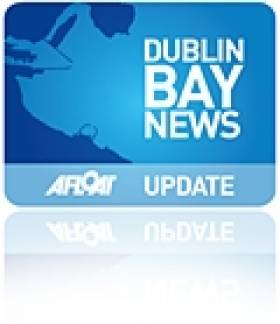Displaying items by tag: Astilleros Zamakona Shipyard, Bilbao
Dublin Port Tugs Making Magic 'Rainbow' Happen
The spectacular effect of the life-size rainbow had never been achieved before in Ireland. Steve Green, the director of the advertisement used a 35mm film, with footage from HD cameras, including one mounted on the helicopter which hovered over the 'new' landmarks of the 'Docklands'.
The imaginative advertisement was created by Sweet Media, the production company chosen to produce the campaign, under the direction of the National Lottery's advertising agency, DDFH&B. The soundtrack for 'Making Magic Happen' is the appropriately titled 'Pocketful of Rainbows', sung by Elvis Presley. The version used is Take 16 from the 1960 recording sessions for the 'G.I. Blues' soundtrack.
As for the stars of the advert, the tugs are named after Irish figures, Shackleton, named in honour of Antartic explorer Sir Ernest Henry Shackleton and Beaufort, named after Navan-born, Sir Francis Beaufort, who created the world-renowned wind-scale measurement.
The 50-bollard ton tugs cost €6m each and were built at the Astilleros Zamakona Shipyard, Bilbao. In March the tugs officially entered service after a joint naming ceremony was held in Dublin Port.
To view the tugs in water-firing, making magic mode!... click the link here
























































